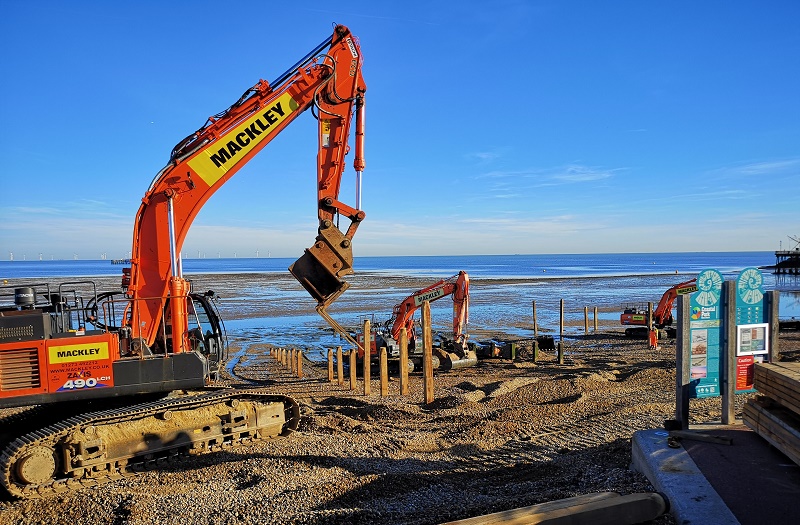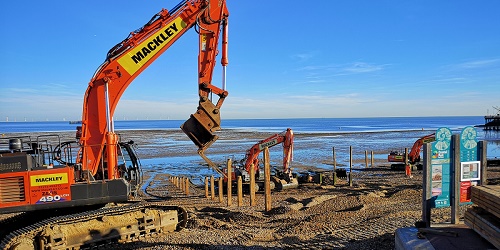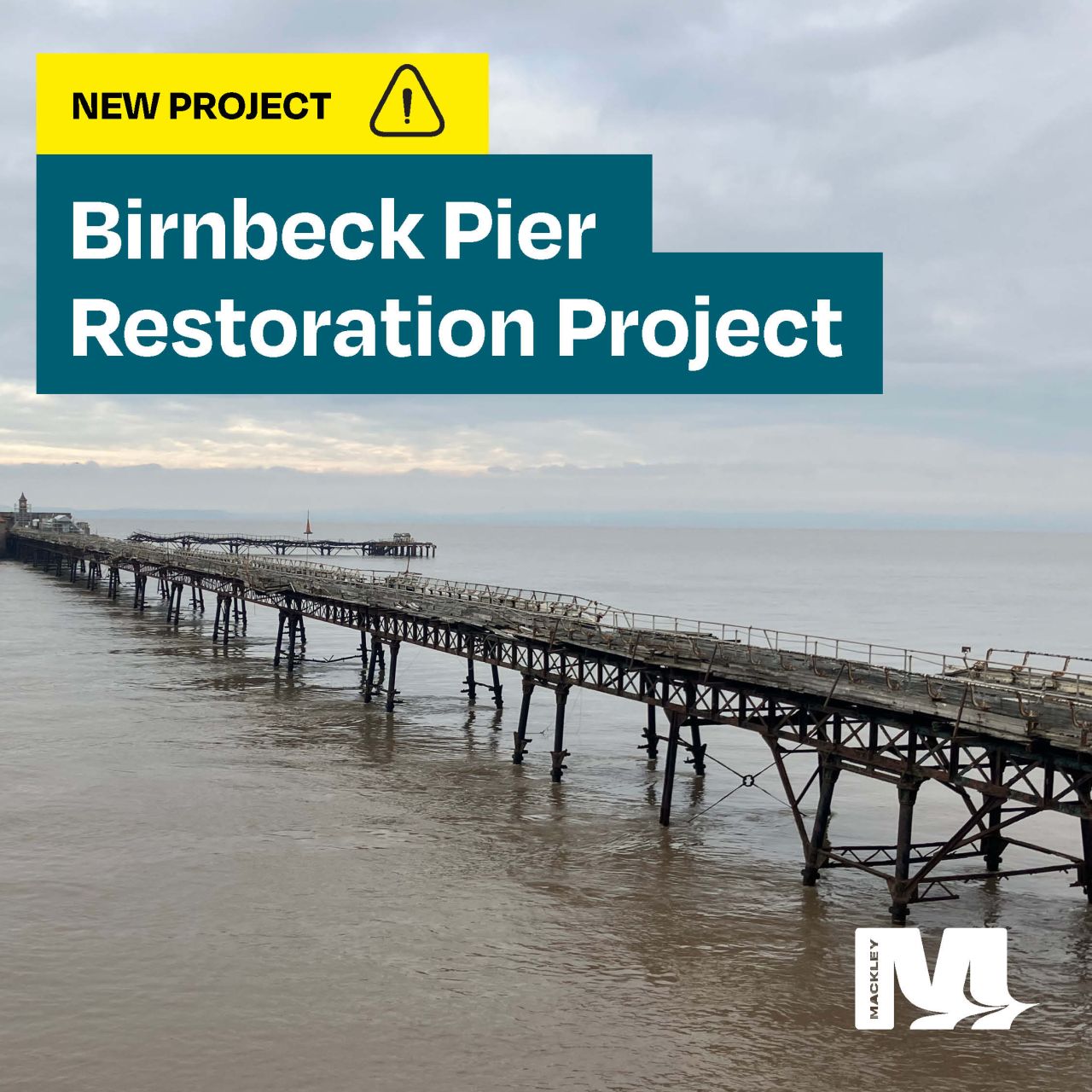
Mackley has recently begun work on an important coastal defence project in Kent, which when complete will provide improved protection from the sea for many years to come.
The Herne Bay Coast Protection Works is being carried out by Mackley on behalf of Canterbury City Council – following a successful bid for Environment Agency funding.
When the £2.8m scheme was first announced in March 2018, Cllr Neil Baker, Chairman of Canterbury City Council’s Community Committee, described it as “great news for Herne Bay”.
The project will see the construction of a total of 24 new timber beach groynes; 13 at the King’s Hall and 11 at Lane End. Having been built in 1963 and 1972 respectively, the current groynes are at the end of their design life and as such are longer providing sufficient protection to the seawall.
Further works include rock armour protection between the King’s Hall pumping station and Herne Bay Sailing Club, repairs to the seawall and promenade, handrail refurbishment and 13,100m³ of beach recycling.
The timber for the groynes, FSC ® (Forestry Stewardship Council®) certified Greenheart sourced from Guyana, will be shipped to Scotland where it will be prepared and delivered by road to Whitstable.
® (Forestry Stewardship Council®) certified Greenheart sourced from Guyana, will be shipped to Scotland where it will be prepared and delivered by road to Whitstable.
Work got underway in September and will be carried out during the winter months when the area is less well used. The project is expected to be complete by spring 2019.
Andrew Rintoul, Mackley’s Project Manager, said:
“The nature of the site means recreation, amenity and tourism all play an important part on the frontage of the proposed works, as the beach is extremely popular with a large number of visitors.
“As coastal timber construction specialists, the Mackley project team brings decades of experience to manage the weather and tidal conditions which will play an important part in this project.
“As part of the project, Mackley will be recycling the old timber groynes, as it has done on a number of previous projects.”
Recycling timber groynes
Earlier this year, a number of timber groynes removed from Shoreham beach as part of a previous Mackley project were put to good use by a scout group in West Sussex.
In 2016, a number of groynes were given to the non-profit organisation Sustainable Sussex, which provides meaningful real-work experience for people who find access to the workplace difficult, including those with learning disabilities and other needs.
Projects to benefit from this partnership included Roots to Growth, who used the groynes to form the base of a pizza/bread oven; and the Transition Town Worthing project, who created a raised herb garden.
9 November 2018


